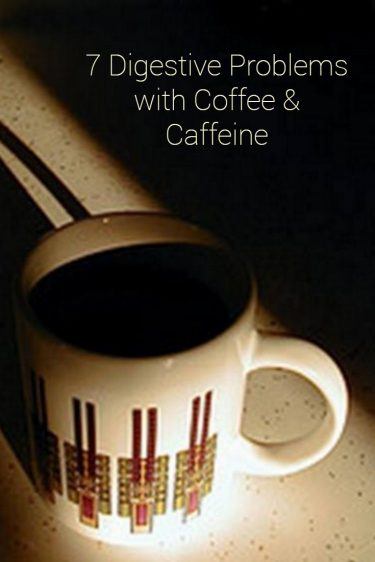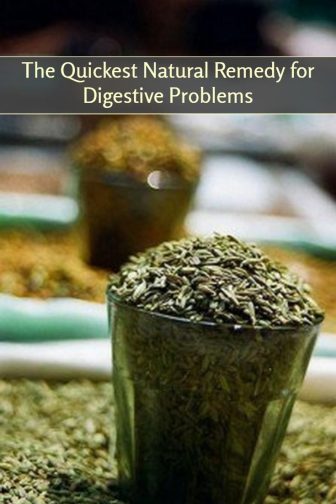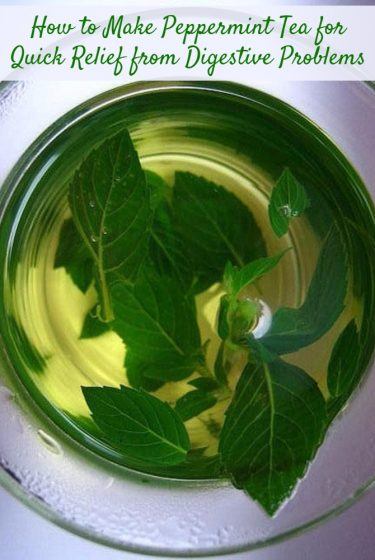Possible Causes of Digestive Problems
In this article:
- What other potential causes of digestive problems to consider when symptoms aren’t improving.
- Serious gastrointestinal diseases that require diagnosis and medical attention.
Possible Causes of Poor Digestion and Gastrointestinal Irritation
Indigestible and poorly digested carbohydrates, like galactans, fructans, lactose, fructose and sugar alcohols are common causes of bloating, intestinal pain and excessive gas.
Most people suffering from these kind of digestive problems usually see a quick improvement by limiting sources of these substances in their diet.
Beyond this, poor digestion, where food either isn’t chewed up properly, protein isn’t broken down with enough stomach acid or digestive enzymes in the small intestine are insufficient, is also often a cause of intestinal upsets.
However, if you’ve limited malabsorbed carbohydrates in your diet and taken steps to improve your digestion, yet you’re still experiencing ongoing digestive problems, it’s time to consider other possible causes.
While this article won’t be able to cover these other potential causes of digestive problems in detail, each will contain a valuable link for further research.
Consider, as you read through this list, how many of these potential digestion destroyers could be affecting you personally and how you could minimize them in your life.
Stress
Stress and anxiety can certainly damage your digestive function. Stressed-out people tend to rush through their meals, often swallowing air and gulping down food before it is properly chewed.
Nervous tension also increases levels of the hormone cortisol in your body, which negatively impacts on your digestion. It’s very important for so many different aspects of your health and wellbeing to get stress and cortisol levels under control.
A simple first step would be just slowing down during the day and taking the time to enjoy a proper breakfast, a calm lunch and a relaxed dinner.
Rushing down food is hugely detrimental to your digestive health. Take a few extra minutes with each meal to really chew and taste your food for enhanced nutrient absorption, less gastrointestinal issues and better health and energy.
Fried and High-Fat Meals
Chemically processed fats, like vegetable oils and unhealthy margarine, are destructive to both your digestion and long-term health. A fatty fried meal will tend to sit in your stomach for hours and increase the chance of acid reflux and intestinal discomfort.
High-fat meals also put extra strain on your gallbladder, which has to produce a lot of bile to digest them. If you experience gastrointestinal problems soon after eating any kind of fatty meal, it would be important to see a doctor to check on your gallbladder function.
Large Protein Meals
Lots of protein, particularly low-quality sources like processed meats, can overload your stomach’s ability to produce digestive pepsin, as well as your pancreatic enzyme capacity in the small intestine. This is especially true if you don’t chew up concentrated protein like meat properly.
It’s far healthier to have smaller amounts of high-quality protein, like organic eggs, grass fed meats and wild caught seafood, than overload on ‘meat’ made of offcuts and you don’t want to know what else.
Digestive enzymes can help if taken with a big protein meal, but overall it’s best to eat a bit less and choose better protein sources.
Spicy Foods
Some people react badly to spicy foods and feel the effects soon after. This is one of the more obvious causes of digestive problems and if you’re sensitive to chili and other spicy ingredients you’ll usually know it as the effects can be dramatic.
Spicy foods can irritate your stomach, gallbladder and lower intestine in large enough amounts and should be skipped for a while if you’re experiencing ongoing gastrointestinal issues.
 Rhodiola Fights Fatigue, Enhances Mental Performance & Helps You Power Through Stress With Sustained Energy | Third Party Tested, Pharmaceutical Grade, Made in the USA, Free Delivery
Rhodiola Fights Fatigue, Enhances Mental Performance & Helps You Power Through Stress With Sustained Energy | Third Party Tested, Pharmaceutical Grade, Made in the USA, Free Delivery
Salt
Foods high in manufactured sodium chloride increase water retention and bloating and are well worth avoiding. On the other hand, natural salts like Celtic salt or Himalayan crystal salt provide the chloride needed for hydrochloric acid production in the stomach.
Switch to a natural salt high in trace minerals like this and you won’t have to worry about using it in reasonable moderation.
Exercising After Eating
Allow at least two hours after eating before doing heavy exercise. It’s not just all the moving around that can impair digestion either.
Exercise diverts blood flow away from your digestive system and into muscles. This slows down digestion and delays the time it takes for your food to be broken down, increasing the chances of it becoming a feast for bad bacteria.
A gentle walk after a meal though is beneficial for digestion and very popular in Asian countries like Japan. This is a good habit to get into after dinner, instead of slumping down into a couch.
Menstrual Bloating
During women’s menstrual cycle there is often an increase in bloating due to the rise in hormones like estrogen and progesterone. These hormones increase fluid retention, which can result in a swollen belly and uncomfortable abdominal pressure.
While menstrual bloating has different causes to most other types of bloating, any gassy meals eaten during this time will only compound the problem. It’s also beneficial to avoid foods high in sodium chloride that increase water retention.
There’s more on the causes of menstrual bloating and minimizing the effects here.
Drinking Too Much Liquid While Eating
It’s been mentioned in several other articles, but it’s important to repeat that large amounts of liquid with your meals will impair the process of digestion. This is especially true of high fructose sodas and fruit juices.
The best time to drink beverages is just before a meal. A big glass of water with apple cider vinegar or lemon juice is an excellent choice for better digestion. Fennel tea or ginger tea can also help to prevent intestinal discomfort when eating a potentially challenging meal.
Coffee
Many people have coffee with a meal, but this probably isn’t a good idea if you’re suffering from digestive problems.
Acids in the coffee are known to cause gastric emptying, reduce nutrient absorption and have a surprisingly negative effect on digestion.
Alcohol
Drinking alcohol with a heavy meal has been observed to significantly slow down digestion time and potentially increase acid reflux. In broader terms, too much alcohol can harm your stomach, pancreas and particularly your liver, all of which are vital parts of your digestive system.
An occasional drink shouldn’t cause too many problems, but watch out for heavy drinking as a cause of gastrointestinal distress (and a lot of other damage to your body).
Irritable Bowel Syndrome
IBS or irritable bowel syndrome seems to be a bit of a catchall term for ongoing and serious digestive problems. Symptoms include heavy bloating, regular abdominal cramps, intestinal pain, lots of flatulence and alternating diarrhea or constipation.
Unlike the occasional gassy effects of eating a big plate of beans, irritable bowel syndrome affects sufferers constantly and can lead to a serious deterioration in their health as they struggle to absorb nutrition from the foods they eat.
Irritable bowel syndrome requires treatment from a specialist who understands the seriousness of the disease and how to address it. There’s a good doctor’s case study and treatment suggestions here and more details on the causes and possible solutions to IBS here.
Candida Overgrowth
Lack of good bacteria doesn’t just increase bad bacteria in your intestinal environment. If allowed, the usually benign candida yeast can expand rapidly into a pathogenic fungus with very damaging effects on many parts of your body.
Candida yeast loves to feed on sugar, so the more sweetened foods and drinks you have in your diet, the more at risk you are of candida overgrowth. While all the actions taken in the previous articles, particularly in the Smart Food Swaps, will lower your risk, if you already have candida overgrowth this may not be enough.
This page has a rundown of the common symptoms of candida overgrowth and how to deal with the disease.
Parasites
Intestinal parasites like roundworms, hookworms and tapeworms are a far more common problem than most people realize, even in Western countries like the USA, and regularly cause a variety of digestive issues.
You can read about some of the usual symptoms here and this page has a potent treatment for dealing with these intestinal invaders.
Leaky Gut Syndrome
This is a serious condition with the potential to cause all sorts of autoimmune problems throughout your body. This page has a good explanation of how the leaky gut syndrome is caused and some of the potential solutions, many of which are already covered in this program.
 CDP Choline (Citicoline) | Pharmaceutical Grade, Made in the USA | Improves Focus, Memory, Motivation and Mental Energy | Best Value + Free Delivery
CDP Choline (Citicoline) | Pharmaceutical Grade, Made in the USA | Improves Focus, Memory, Motivation and Mental Energy | Best Value + Free Delivery
Crohn’s Disease
Crohn’s disease is a serious condition that causes inflammation of the lining of the intestines and severe digestive disorders. It is a painful and debilitating inflammatory bowel disorder that can even be life-threatening.
This article has a description of the most common symptoms and anyone suspecting that they may be suffering from Crohn’s disease should see a doctor as soon as possible.
Other Diseases
There are several other diseases that can cause ongoing digestive problems, even when you are avoiding gas causing foods and taking steps to improve your digestion.
Gastritis, stomach ulcers, pancreatitis, gallstones, gallbladder inflammation, diverticulitis, ulcerative colitis, inflammatory bowel disorder, liver disease and diabetes can all seriously impact on your ability to digest food and the condition of your entire gastrointestinal system.
If you’ve worked on your diet and digestion and still aren’t seeing improvements then it’s very important to find a digestive health specialist. Once you do, discuss your symptoms and get tested for possible diseases so you can eliminate them as a potential cause or start treating them properly.
One further cause of bloating, and to a lesser extent flatulence, that is often overlooked is the air we swallow when we eat foods, drink beverages and particularly when we’re stressed and anxious. This article covers how to stop swallowing too much air.
Actions:
- If your gastrointestinal issues continue to deteriorate, despite removing gas causing foods from your diet and taking steps to improve your digestion then seriously think about visiting your doctor for a checkup.
- Consider if any of the potential dietary or lifestyle causes of digestive problems here apply to you. If the could then think about ways to minimize them in your life.
- What other potential causes of digestive problems to consider when symptoms aren’t improving.
- Serious gastrointestinal diseases that require diagnosis and medical attention.
Resources:

As an Amazon Associate I may earn from qualifying purchases at no cost to the consumer | Information presented here is for educational purposes only. The content is not intended to be a substitute for professional advice. Statements made have not been evaluated by the FDA and are not intended to diagnose, cure, treat or prevent any condition. Consult your GP before making dietary changes or taking supplements.






